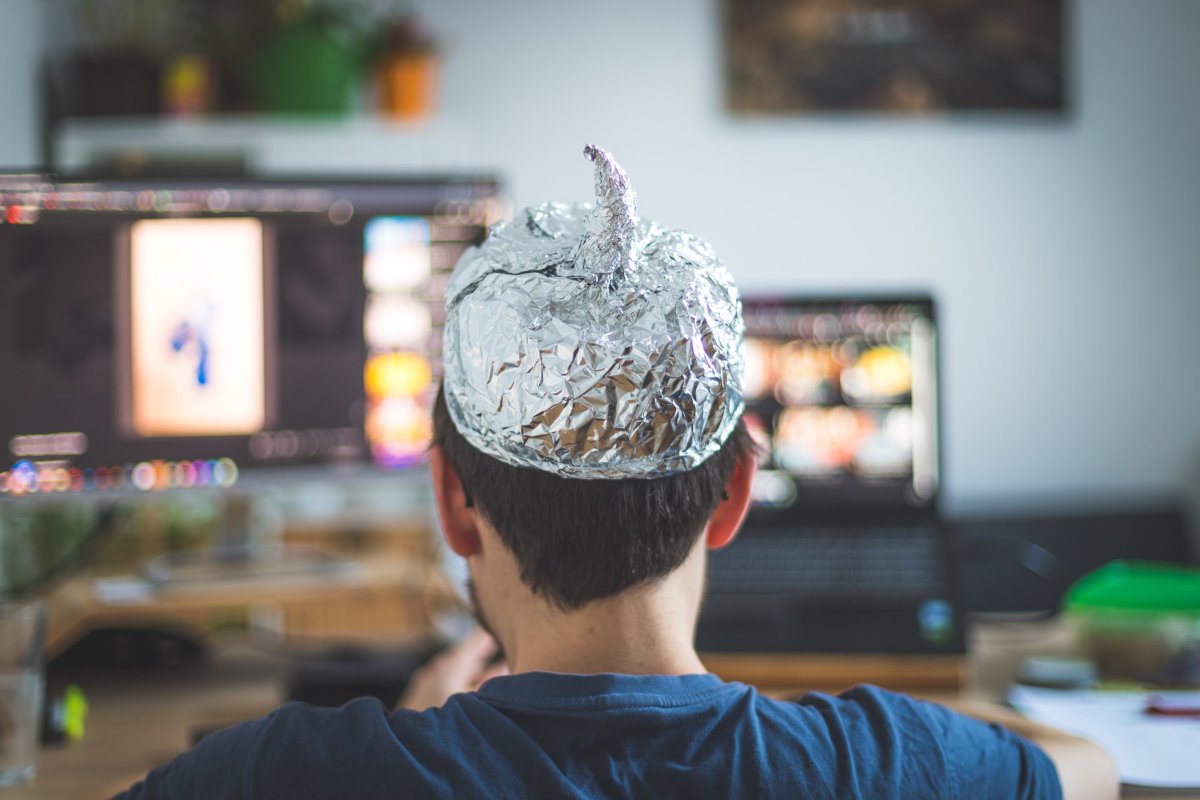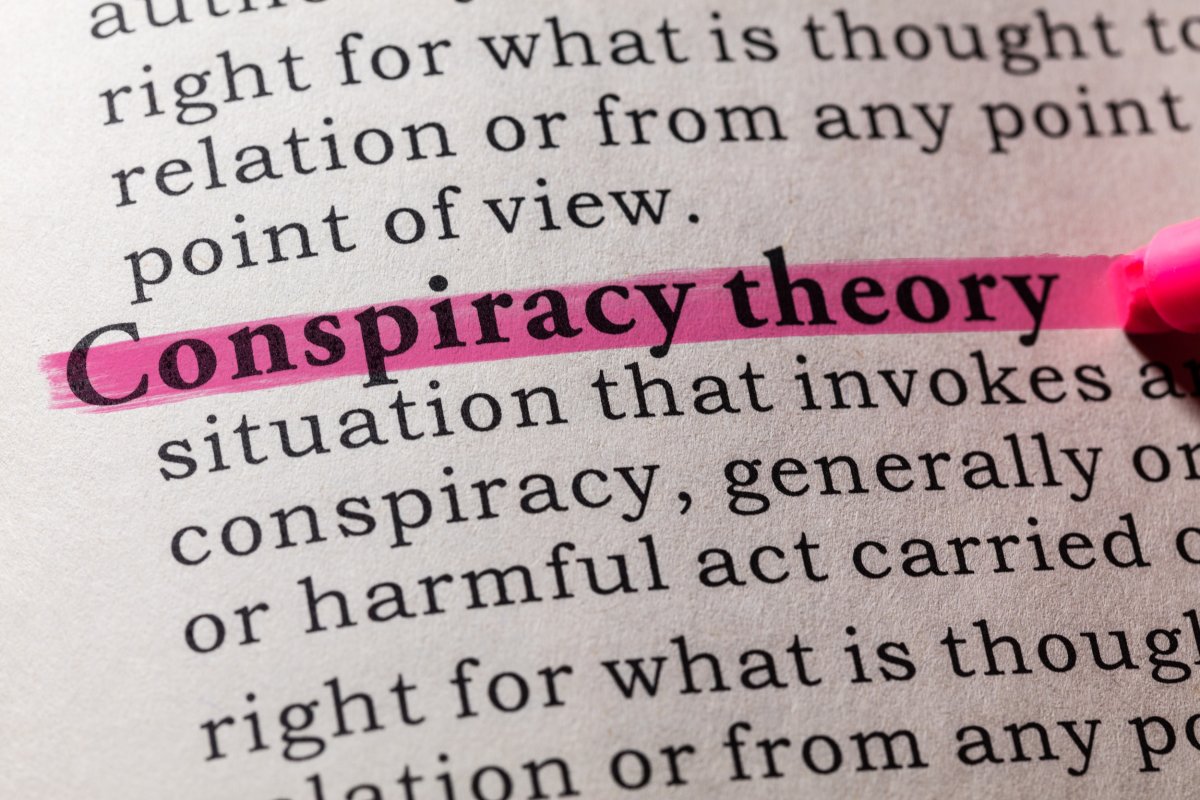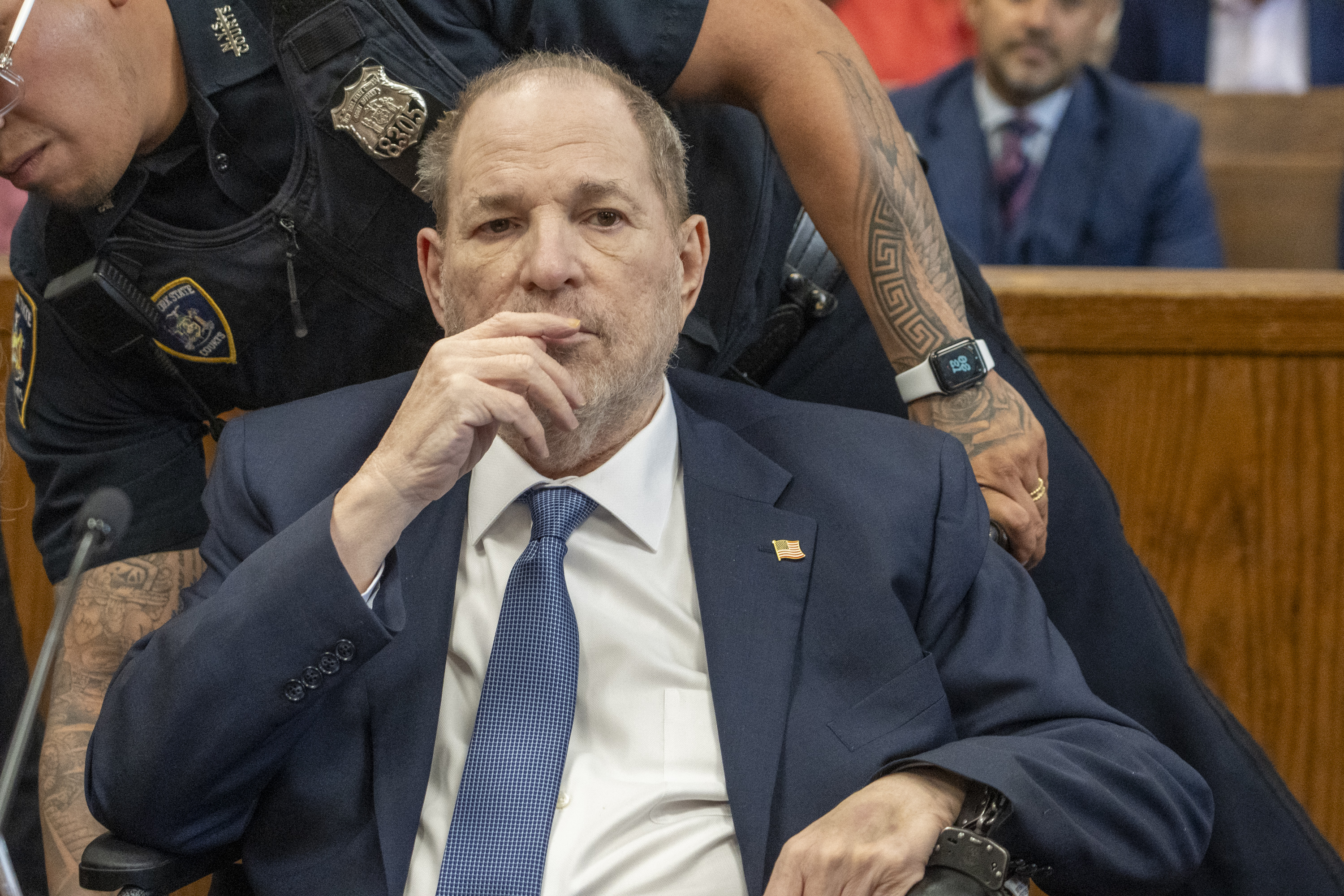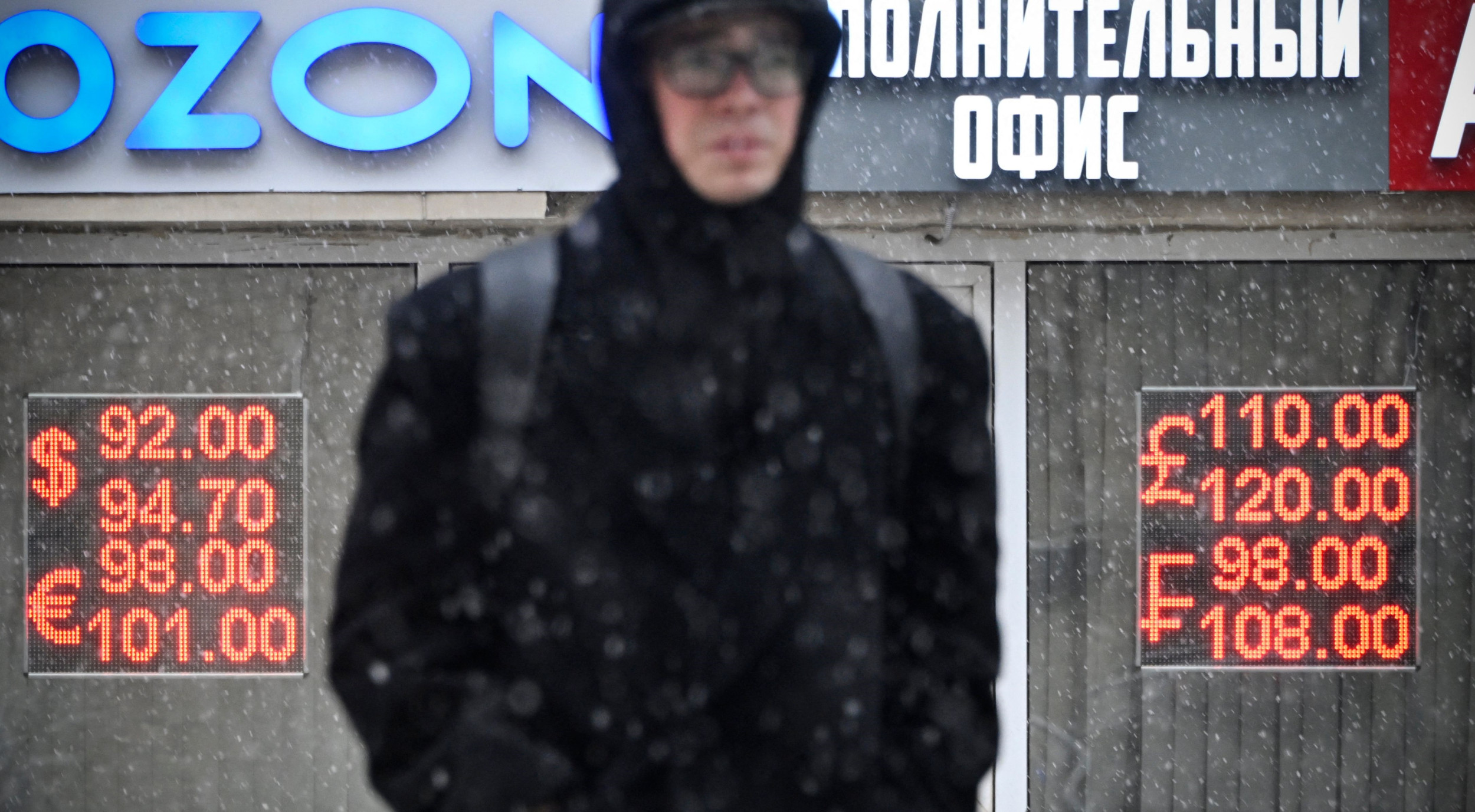Conspiracy theories have always sparked our imaginations, from rumors that Elvis is still alive to the idea of alien spaceships being hidden in Area 51.
Experts believe conspiracy theories may be on the rise in response to our increasingly complicated world. COVID alone has triggered the emergence of a number of conspiracy theories, including that COVID was manufactured in a lab as a bioweapon, and that the vaccine may be implanting chips into us or causing autism.
"I think it is easier to generate conspiracy theories because we have a greater volume of information available to us. The world is complex and, at times, confusing, and conspiracy theories provide a satisfying narrative thread to tie together global events," Naomi Smith, a sociology lecturer at the University of the Sunshine Coast in Australia, told Newsweek.

In the wake of egg shortages and increased prices of egg-based products across the country, one new bogus conspiracy theory is gaining traction. The theory claims that chicken eggs are capable of treating COVID-19, pushing prices up across the board.
In an article posted to a blog named The DC Patriot, a writer using the pen name Howard Roark claimed a recent scientific paper showed that chicken egg yolk antibodies block the binding of COVID-19 spike proteins to proteins on the surface of human cells.
"Chicken Egg Yolk Antibodies block the binding of multiple SARS-CoV-2 Spike Protein Variants to human ACE2. We're serious, and we've got the studies, links, and it's all from our own National Institute of Health right here in America," Roark wrote.
"Is that why eggs are disappearing at an alarming rate? Is that why chicken farms are being destroyed? We don't know, but it sure is a 'what the hell is happening here' moment, isn't it?"
Popular conspiracy theories have been around for decades, but in recent years, the volume and reach of many theories seems to have increased.
"It's hard to measure the exact volume of conspiracy theories, but I do think they are produced and circulated more quickly than before through social media," Smith said.
"Undoubtedly, there has been a breakdown of trust in institutions, and it seems that a lot of people no longer trust governments, the media and other expert bodies to act in their interests. It's difficult to combat this breakdown in trust, because we know that sometimes institutions are corrupt, secretive and act in their own self-interest, so it's not possible to argue that these things never happen.
"We know from early anti-vaccination theories that celebrity and pop-culture visibility drives and validates these theories—I am thinking specifically of Jenny McCarthy on Oprah promoting the idea that vaccines cause autism. Celebrities make conspiracy theories visible to audiences they might otherwise not reach."

The egg shortage theory is false, as the shortage is in fact being caused by bird flu.
"The egg shortage is, ironically, being influenced by another virus that is unrelated to COVID," David R. Martinez, an immunobiologist at the University of North Carolina at Chapel Hill, told Newsweek. "The egg shortage has been exacerbated by millions of culled egg-laying hens due to the circulation of highly pathogenic avian influenza (HPAI). The egg shortage has nothing to do with imagined and baseless peddled conspiracies."
The avian influenza virus has spread amongst birds across the country and the world, with just under 60 million birds having to be culled so far, according to the U.S. Department of Agriculture. With fewer chickens to produce eggs, there are fewer eggs on the shelves, leading to spiking prices.
Additionally, the paper cited in the conspiracy theory does not support the explanation.
"It may be possible to generate antibodies against COVID in eggs by vaccinating chickens, but this would have absolutely NOTHING to do with the apparent commercial shortage of eggs for human consumption," Michael W. Russell, a professor emeritus of microbiology and immunology at the University at Buffalo, told Newsweek.
"This is an utterly bogus conspiracy theory with no factual basis whatsoever."
The paper, published in the journal International Immunopharmacology in early 2021, showed that antibodies in chicken egg yolk named IgY bond to proteins on the membranes of our cells called ACE2. These proteins are often how coronaviruses like COVID and SARS enter the cell, via the viruses binding to these proteins. The paper suggested that the yolk antibodies could be used to block the entrance of COVID and other viruses into our cells.
BOMBSHELL REPORT: Multiple Studies Have Now Identified Egg Yolk Antibodies Block the Binding of Multiple SARS-CoV-2 (Covid-19) Spike Protein Variants..
— Chuck Callesto (@ChuckCallesto) February 2, 2023
PAYING ATTENTION YET?
"If the data in the paper are to be believed, the paper just shows that egg-yolk antibodies can bind to SARS-CoV-2 spike antigens by a non-quantitive test called ELISA and some unimpressive pseudovirus (not real virus) data," Martinez said.
"This is all in vitro work and no efficacy of these egg-yolk antibodies has been demonstrated in animal tests so it's unclear if these egg-yolk antibodies may have a positive, if any, effect against SARS-CoV-2 in, say, infected mice. The paper shows very preliminary findings. In addition, it is highly unlikely that eating eggs would have any (positive or negative) effect on COVID disease in people beyond providing standard nutritional benefits."
Conspiracy theories and our psychological needs
So why are we so attracted to these types of explanations?
"Research suggests that people are attracted to conspiracy theories when one or more psychological needs are frustrated," Karen Douglas, a professor of social psychology and conspiracy theory psychology researcher at the University of Kent in the U.K., told Newsweek.
"The first of these needs are epistemic, related to the need to know the truth and have clarity and certainty. The other needs are existential, which are related to the need to feel safe and to have some control over things that are happening around us, and social, which are related to the need to maintain our self-esteem and feel positive about the groups that we belong to. People might be attracted to conspiracy theories to try to satisfy these needs."

This perspective essentially means that anyone can fall into conspiracy theories if they have psychological needs that are not being met at any particular time. This is perhaps one explanation why we tend to see a lot of conspiracy theories when things happen like sudden deaths of celebrities, or during pandemics.
"People are looking for ways to understand why this terrible thing has happened. A simple explanation is often not very appealing for such a significant event. People assume that a big event must also have a big or more sinister cause, which is why conspiracy theories can be appealing in times of crisis," Douglas said.
The egg conspiracy
The egg-COVID theory in particular is occurring due to people "re-interpreting randomness," one of the key fingerprints of a conspiracy theory, according to Sander van der Linden, a professor of social psychology in society and director of the Cambridge Social Decision-Making Lab at the University of Cambridge.
"The strategy is basically to take two unrelated events (like 5G towers and covid deaths) and connect them causally with a simple yet incorrect explanation (in this case, current egg shortages and a paper that was published 2 years ago)," van der Linden told Newsweek.
"People generally believe in conspiracy theories because they fulfill at least three key psychological functions; (1) they serve epistemological needs (they offer simple explanations for otherwise complex and random events), (2) relational needs (people can seek out like-minded others and connect online and feel a sense of belonging, agency, and community) and (3) existential needs (people worry about uncertainty and the future so conspiracy theories offer a more comforting distraction)."
Often it's not about the specific narrative but a larger underlying worldview that is driving belief in the conspiracy (e.g., deep mistrust of authority, a feeling of being marginalized or anti-government sentiment).
"In the 1800s, during the development of Edward Jenner's first vaccine, people were fear-mongering about how the cowpox vaccine would turn you into a human-cow hybrid. The same went on with the new mRNA vaccines. It's the same trope, just 200 years later," van der Linden said.
An individual who perceives that the government has played a role in curating/spreading COVID-19 will find the egg shortage adds evidence to their beliefs. When they learn about the shortages, they will interpret that as the government is involved in that for their own self-interest.
"Conspiracy theories certainly appear more plausible when they support previously held world views," Daniel Jolley, an assistant professor in social psychology and conspiracy theory studies expert at the University of Nottingham in the U.K., told Newsweek. "An individual who is distrustful of others – particularly those who are perceived to be powerful—where they also see the world as full of hidden plots and schemes. A piece of information that supports that conspiratorial worldview will gain traction. Moreover, people who tend to see patterns in randomness are more likely to believe in conspiracy theories.
To address such misinformation, theories like these can be debunked by trusted sources explaining how the inciting event—in this case, the egg shortage—has come about.
"Another alternative is to try and address the core beliefs (distrust, psychological biases and needs) that may make such misinformation appealing in the first place. Understanding someone's journey to believe in conspiracy theories could be a good step forward in addressing their beliefs," Jolley said.
Do you have a tip on a science story that Newsweek should be covering? Do you have a question about conspiracy theories? Let us know via science@newsweek.com.
Uncommon Knowledge
Newsweek is committed to challenging conventional wisdom and finding connections in the search for common ground.
Newsweek is committed to challenging conventional wisdom and finding connections in the search for common ground.
About the writer
Jess Thomson is a Newsweek Science Reporter based in London UK. Her focus is reporting on science, technology and healthcare. ... Read more
To read how Newsweek uses AI as a newsroom tool, Click here.








